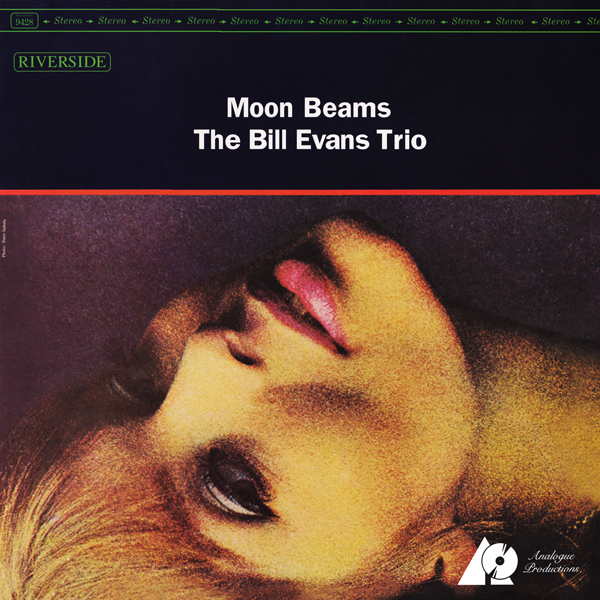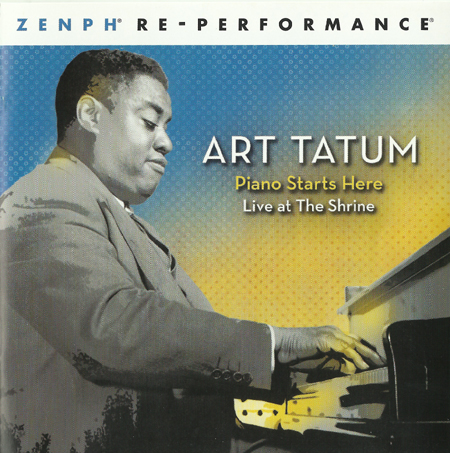
The Bill Evans Trio – Moon Beams (1962/2002)
DSF Stereo DSD64/2.82MHz | Time – 39:09 minutes | 1,55 + 1,80 GB | Genre:Jazz
Official Digital Download – Source: AcousticSounds | © Riverside Records
Recorded: June 2, 1962 (#2-4, 6, 7); May 29, 1962 (# 1, 8); May 17, 1962 (#5), Sound Makers Studio, New York City
Bill Evans was left reeling by the accidental death of his brilliant bassist Scott LaFaro in mid-1961 and didn’t feel ready to record with his new bassist until nearly a year later. When he did go into the studio in May and June of 1962 with Chuck Israels and drummer Paul Motian, the “second trio” produced material for two albums that were to be among Evans’s most popular. Moonbeams includes ballad material from the sessions. The rest of the music from the sessions is in How My Heart Sings! In Moonbeams, Evans did some of his most introspective playing, his sense of loss apparent but relieved by Israels’s power and empathy. “Polka Dots and Moonbeams,” “If You Could See Me Now,” and the others represent Evans at his best, his lyricism underlaid with rhythmic firmness even in the extraordinarily slow “In Love in Vain.”
Moonbeams was the first recording Bill Evans made after the death of his musical right arm, bassist Scott LaFaro. Indeed, in LaFaro, Evans found a counterpart rather than a sideman, and the music they made together over four albums showed it. Bassist Chuck Israels from Cecil Taylor and Bud Powell’s bands took his place in the band with Evans and drummer Paul Motian and Evans recorded the only possible response to the loss of LaFaro — an album of ballads. The irony on this recording is that, despite material that was so natural for Evans to play, particularly with his trademark impressionistic sound collage style, is that other than as a sideman almost ten years before, he has never been more assertive than on Moonbeams. It is as if, with the death of LaFaro, Evans’ safety net was gone and he had to lead the trio alone. And he does first and foremost by abandoning the impressionism in favor of a more rhythmic and muscular approach to harmony. The set opens with an Evans original, “RE: Person I Knew,” a modal study that looks back to his days he spent with Miles Davis. There is perhaps the signature jazz rendition of “Stairway to the Stars,” with its loping yet halting melody line and solo that is heightened by Motian’s gorgeous brush accents in the bridge section. Other selections are so well paced and sequenced the record feels like a dream, with the lovely stuttering arpeggios that fall in “If You Could See Me Now,” and the cascading interplay between Evan’s chords and Israel’s punctuation in “It Might As Well Be Spring,” a tune Evans played for the rest of his life. The set concludes with a waltz in “Very Early,” that is played at that proper tempo with great taste and delicate elegance throughout, there is no temptation by the rhythm section to charge it up or to elongate the harmonic architecture by means of juggling intervals. Moonbeams was a startling return to the recording sphere and a major advancement in his development as a leader. -Thom Jurek
Tracklist:
1 Re: Person I Knew 5:42
2 Polka Dots And Moonbeams 4:57
3 I Fall In Love Too Easily 2:39
4 Stairway To The Stars 4:48
5 If You Could See Me Now 4:27
6 It Might As Well Be Spring 5:59
7 In Love In Vain 4:59
8 Very Early 4:58
Personnel:
Bill Evans – Piano
Chuck Israels – Bass
Paul Motian – Drums
DSF Stereo DSD64/2.82MHz
mqs.link_TheBillEvansTriMnBeams1962DSD64.part1.rar
mqs.link_TheBillEvansTriMnBeams1962DSD64.part2.rar
FLAC 24bit/192kHz
mqs.link_TheBillEvansTriMnBeams196219224.part1.rar
mqs.link_TheBillEvansTriMnBeams196219224.part2.rar




















![Ornette Coleman - The Atlantic Years (2018) [AcousticSounds FLAC 24bit/192kHz] Ornette Coleman - The Atlantic Years (2018) [AcousticSounds FLAC 24bit/192kHz]](https://getimg.link/images/imgimgimg/uploads/2018/11/2ZFbQJs.jpg)
![Bill Evans Trio - Sunday At The Village Vanguard (1961/2002) [AcousticSounds DSF DSD64/2.82MHz] Bill Evans Trio - Sunday At The Village Vanguard (1961/2002) [AcousticSounds DSF DSD64/2.82MHz]](https://getimg.link/images/imgimgimg/uploads/2016/11/OvP4y04.jpg)
![Bill Evans Trio - Portrait in Jazz (1960/2017) [FLAC 24bit/96kHz] Bill Evans Trio - Portrait in Jazz (1960/2017) [FLAC 24bit/96kHz]](https://getimg.link/images/imgimgimg/uploads/2018/12/2hKOeXY.jpg)
![Bill Evans - Waltz For Debby (Live At The Village Vanguard / 1961) (2023) [FLAC 24bit/192kHz] Bill Evans - Waltz For Debby (Live At The Village Vanguard / 1961) (2023) [FLAC 24bit/192kHz]](https://imghd.xyz/images/2023/08/05/q8m2djqmky77b_600.jpg)
![Various Artists - Great Jazz Selection (2018) [Esoteric Japan Box Set] SACD ISO + FLAC 24bit/96kHz Various Artists - Great Jazz Selection (2018) [Esoteric Japan Box Set] SACD ISO + FLAC 24bit/96kHz](https://getimg.link/images/imgimgimg/uploads/2020/09/89wGX1G.jpg)
![Bill Evans Trio - Waltz for Debby (1961/2011) [HDTracks 24bit/192kHz] Bill Evans Trio - Waltz for Debby (1961/2011) [HDTracks 24bit/192kHz]](https://getimg.link/images/imgimgimg/uploads/2016/01/mQN1z.jpg)
![Scott LaFaro - Pieces Of Jade (2009/2017) [AcousticSounds DSF DSD128/5.64MHz] Scott LaFaro - Pieces Of Jade (2009/2017) [AcousticSounds DSF DSD128/5.64MHz]](https://getimg.link/images/imgimgimg/uploads/2018/08/0nC0n9w.jpg)
![Bill Evans Trio - Explorations (1961/2011) [HDTracks 24bit/88.2kHz] Bill Evans Trio - Explorations (1961/2011) [HDTracks 24bit/88.2kHz]](https://getimg.link/images/imgimgimg/uploads/2016/01/SiMtgYz.jpg)
![Scott LaFaro - Pieces Of Jade (2009/2017) [HDTracks DSF DSD128/5.64MHz + FLAC 24bit/88,2kHz] Scott LaFaro - Pieces Of Jade (2009/2017) [HDTracks DSF DSD128/5.64MHz + FLAC 24bit/88,2kHz]](https://getimg.link/images/imgimgimg/uploads/2018/04/0nC0n9w.jpg)
![Bill Evans - Explorations (1961) [Japanese Limited SHM-SACD 2011] {SACD ISO + FLAC 24bit/88.2kHz} Bill Evans - Explorations (1961) [Japanese Limited SHM-SACD 2011] {SACD ISO + FLAC 24bit/88.2kHz}](https://getimg.link/images/imgimgimg/uploads/2016/01/H59KZs2.jpg)
![Bill Evans - Live at Ronnie Scott’s (2020) [FLAC 24bit/96kHz] Bill Evans - Live at Ronnie Scott’s (2020) [FLAC 24bit/96kHz]](https://getimg.link/images/imgimgimg/uploads/2021/04/mDyGFG7.jpg)
![Bill Evans Trio - Portrait in Jazz [Remastered] (1960/2017) [FLAC 24bit/192kHz] Bill Evans Trio - Portrait in Jazz [Remastered] (1960/2017) [FLAC 24bit/192kHz]](https://getimg.link/images/imgimgimg/uploads/2021/04/gNTW5On.jpg)
![Bill Evans Trio - At Shelly’s Manne-Hole (Live) (1963/2021) [FLAC 24bit/192kHz] Bill Evans Trio - At Shelly’s Manne-Hole (Live) (1963/2021) [FLAC 24bit/192kHz]](https://imghd.xyz/images/2021/12/31/zwc9ebgu38fya_600.jpg)

![Bill Evans - You Must Believe In Spring (Remastered 2022) (2022) [FLAC 24bit/192kHz] Bill Evans - You Must Believe In Spring (Remastered 2022) (2022) [FLAC 24bit/192kHz]](https://imghd.xyz/images/2022/07/16/yl7t2idv3v15a_600.jpg)